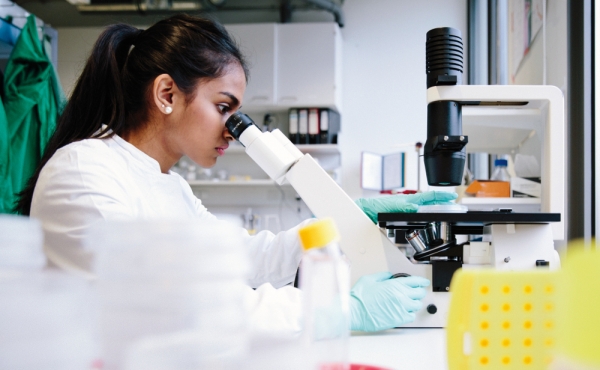Research priorities
The College supports research into areas of priority for both patients and clinicians
Along with its NIAA partners, the College participated in the Anaesthesia and Perioperative Care Priority Setting Partnership (PSP); a collaborative effort asking patients, the public and clinical professionals to identify the most important directions for new research in anaesthesia and perioperative care.
The Anaesthesia and Perioperative Care PSP began in early 2013 when the James Lind Alliance (JLA) accepted a proposal from the NIAA to run an 'Anaesthesia PSP'. The JLA is a non-profit making initiative established in 2004 which aims to bring these groups together to identify and prioritise the top 10 uncertainties or 'unanswered questions' about aspects of care which truly matter both to patients and to clinicians. This process involves:
- a survey to gather research ideas from patients, carers and clinicians
- the suggestions are then compared with the scientific literature and narrowed down by voting ('interim prioritisation')
- a final workshop is held, where 20-30 patient and clinician representatives review the most popular research questions, and arrive by mutual consensus at a 'top ten' list of research priorities.
Top 10 priorities
The first survey (gathering research ideas and suggestions) was conducted online during June and July 2014. The second 'prioritisation' survey ran from February to April 2015. The final stakeholder workshop, to agree the final 'Top Ten Priorities' was held at the Association of Anaesthetists in May 2015.
The final top ten priorities (in no particular order) were agreed to be:
- what can we do to stop patients developing chronic pain after surgery?
- how can patient care around the time of emergency surgery be improved?
- what long-term harm may result from anaesthesia, particularly following repeated anaesthetics?
- what outcomes should we use to measure the 'success' of anaesthesia and perioperative care?
- how can we improve recovery from surgery for elderly patients?
- for which patients does regional (local) anaesthesia give better outcomes than general anaesthesia?
- what are the effects of anaesthesia on the developing brain?
- do enhanced recovery programmes (fast-track surgery to speed up patient recovery) improve short and long-term outcomes?
- how can pre-operative exercise or fitness training, including physiotherapy, improve outcomes after surgery?
- how can we improve communication between the teams looking after patients throughout their surgical journey?
Stakeholders
Representatives from 23 partner organisations (13 multidisciplinary professional societies and 10 patient groups) were involved in choosing the ten most important research topics for the specialty of anaesthesia and perioperative care.
The 'professional' stakeholder organisations included the two main anaesthetic professional organisations (The College and the Association of Anaesthetists), anaesthetic specialist societies, as well as the Royal College of Surgeons of England and various organisations representing other healthcare professionals involved in perioperative care delivery. Between them these professional organisations represent over 40,000 members.
The 'patient, carer and public' stakeholder organisations represented a diverse range of patients with experience of anaesthesia and perioperative care. The total active membership of the affiliated organisations was estimated at well over 50,000.
Click here for more information about the affiliated partner organisations.
The PSP partners reach out to several million patients.
The total active membership of the affiliated organisations was estimated at well over 50,000. Some, such as Age UK and the National Childbirth Trust, each support over a million patients and carers. Find out more at the NIAA website.



